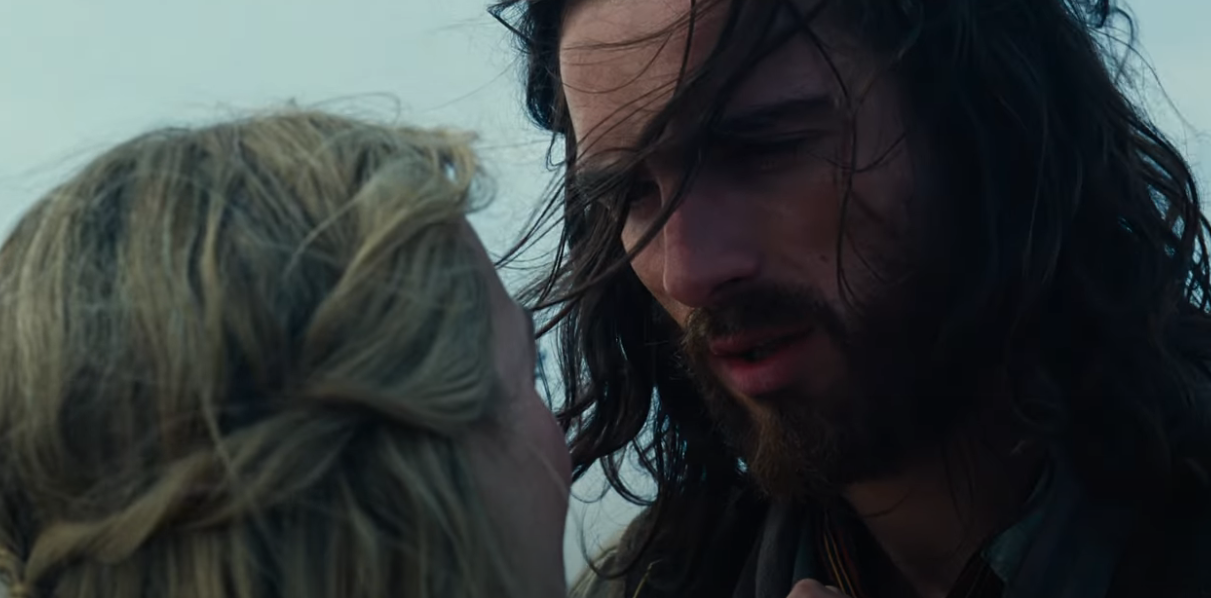The sad literary girls are in uproar. The focus of our outrage? The one-and-a-half-minute trailer for Emerald Fennell’s Wuthering Heights movie, which arrived online on Wednesday with all the subtlety of, well, a trailer for an Emerald Fennell movie.
It’s the moment many Emily Brontë fans had been dreading ever since set photos emerged featuring Margot Robbie as Catherine, wearing a flouncy puffball of a wedding dress that looked more Eighties Sloane Ranger than 18th century, and Jacob Elordi as Heathcliff, grinning with a gold tooth. And somehow, this brief teaser manages to be even worse than we’d imagined. I haven’t felt so personally attacked by a literary adaptation since Dakota Johnson started Fleabagging to the camera in Netflix’s assault on Jane Austen’s Persuasion.
Elordi’s Heathcliff seems to have been reimagined as one of the hulking male models who appeared on the cover of pulpy romance novels back in the day, all long hair, abs and brooding glances. There’s music from Charli xcx (Brontë meets Brat? It’s a no from me). The colour grading has been amped up so that many of the settings resemble hyper-stylised music video backdrops. There are a lot of fingers being stuck into mouths, or into dead fish (Fennell is not one to shy away from turning subtext into screamingly obvious text).
Wuthering Heights is getting the Saltburn treatment – with shock tactics and more-is-more aesthetics replacing any real substance. Frankly, the trailer is every devotee’s worst fears come to life, soundtracked by “Everything is romantic”. It is, as one X (Twitter) user rather scathingly put it, “the matcha Dubai chocolate labubu of film”, a strange farrago of on-trend components (Jacob! Margot! Charli!) that seems to have been perfectly calibrated to rage-bait the internet rather than, you know, actually do any justice to the original.
Why does it feel like such an affront? After all, bad film adaptations of literary works aren’t exactly rare. And, in theory, Wuthering Heights is “just a book”, as the film’s casting director Kharmel Cochrane put it when defending her choice of lead actors earlier this year; the decision to cast Elordi as Heathcliff, who is described in the book as “dark-skinned”, has proved to be another major point of contention, one that some reckon will flatten the nuances and complex dynamics of the original.
But calling Wuthering Heights “just a book” underestimates just how strong a grip Brontë’s story still has on readers almost two centuries on from its publication. It’s a novel that inspires a rare kind of devotion, especially among female fans. There’s a cult around Emily’s one and only book that vastly exceeds the fervour inspired by her sister Charlotte’s most famous novel, Jane Eyre, and certainly outstrips the fandom for the underrated Anne. And with that adoration comes a protectiveness over this bleak marvel.

Perhaps it’s down to the fact that many of us were introduced to the story of Cathy, Heathcliff and their appalling families when we were in our teens. It’s a text that often crops up on the GCSE and A-level syllabus, sure, but it’s also the perfect literary accompaniment to the sort of big, messy feelings that come with adolescence. When you tune into the book’s emotional frequency at that impressionable age, it’s impossible to resist. Once you’ve aged out of those heightened moods and melodramas, though, it’s subtle and rich enough that you can still find more in the story; the “A” plot of the tormented lovers becomes just one part of an often harrowing tapestry of generational trauma.
This version looks all style and precisely zero substance
But what also makes us Wuthering Heights lovers just so defensive about our sacred text is the fact that it’s so frequently misunderstood. Fennell’s odd cocktail of anachronisms and BDSM overtones isn’t the first time that the book has been misconstrued. It’s often referred to (usually by people who’ve only really listened to the Kate Bush song) as a sweeping love story, but the reality is much more complicated. It’s a book about class, family, and what happens when you’re brought up on the very edge of civilisation. That’s why it feels almost painful to see Fennell about to flatten it out into a story about two very photogenic people having some vaguely subversive sex in barns. I can’t put it better than the Twitter user who damningly wrote: “Emily Brontë is rising from her grave as we speak, because why did they turn Wuthering Heights into Fifty Shades of Heathcliff and Cathy?”
Of course, I’m not proposing that obsessively accurate films are the only way to go. Andrea Arnold’s 2011 take on Wuthering Heights, more of a mood piece than a straightforward telling of the story, proves that you can truly summon up the heart of the book without hanging on to Brontë’s every word. But an adaptation has to stay true to the original’s spirit in order for that playfulness to work – and this version looks all style and precisely zero substance.
Just like Saltburn, this Wuthering Heights seems designed to be clipped up and commented upon on TikTok. Perhaps getting so irate about her trailer is just playing into Fennell’s hands. Maybe this is all an elaborate attempt at trolling self-serious literary types with earnest opinions about which Brontë sister they’re most like. But still, it’s enough to make me (and, I presume, plenty of other Emily fans) want to climb out onto the wily, windy moors and scream into the void.







